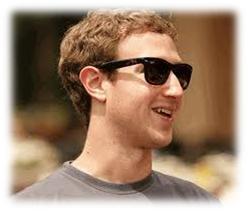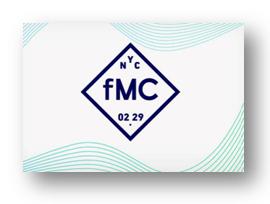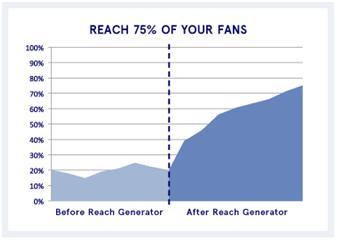We’ve all been there. You’ve been living in an apartment for a while, you paint the place, make some improvements, you start to get comfortable with your surroundings, and the place feels like it’s… yours.
 And then you hear from the landlord about some kind of policy change that’s going into effect on Monday. Maybe the complex no longer allows dogs. Or perhaps parking restrictions are enforced, so your friends have to inconveniently park across the street. These are the edicts that can just materialize because you’re a tenant.
And then you hear from the landlord about some kind of policy change that’s going into effect on Monday. Maybe the complex no longer allows dogs. Or perhaps parking restrictions are enforced, so your friends have to inconveniently park across the street. These are the edicts that can just materialize because you’re a tenant.
Well, that’s what continues to happen on Facebook. You may feel like you own your station (or personal) page because you’ve diligently gathered thousands of “likes,” you lovingly post your best stuff, and you’re simply on it all the time conversing with your fans.
But the reality is that Facebook is purely “rental” property – and you’re just another tenant. And you’re not paying them a dime to spend time there and help build your social brand. In the digital panorama of sources – from your website to your database to your podcasts – Facebook is not yours.
Mark Zuckerberg is the owner/landlord, and he has very succinct ideas about how his property is to be used and managed. He’s “into” appearance and he is a stickler about policies that promote relationships and connections, while disdaining hype and shouting.
 And last Wednesday was a reminder of that reality. The very first “Facebook Marketing Conference” took place throughout the entire afternoon. And changes are being instituted in the way that brands will use Facebook. There will be a lot written about the Timeline feature, but there are other new wrinkles within the Facebook empire that are more telling about where this space is headed.
And last Wednesday was a reminder of that reality. The very first “Facebook Marketing Conference” took place throughout the entire afternoon. And changes are being instituted in the way that brands will use Facebook. There will be a lot written about the Timeline feature, but there are other new wrinkles within the Facebook empire that are more telling about where this space is headed.
Just a few weeks ago, I speculated about how these changes might be instituted, suggesting at the time that Facebook could start levying fees on the number of “likes” that brands accrue. After all, “hoarding likes” is something that most radio stations (and other brands) love to do.
So it was interesting to read this quote from Ben Winkler, chief digital officer at OMD (part of the Omnicom Media Group), in The New York Times: “The more fans we have, the more we pay. The Facebook platform is undeniably incredible, but we must acknowledge that our customer relationships there are not owned – they’re rented. That reality must color how our clients engage with their customers and their customers’ data.”
That’s why we continue to remind our clients that it is not about the quantity of people who click “like” on your page. In the eyes of Mark Zuckerberg, it’s the quality of relationships you create and nurture in this space. And now it’s going to cost you to achieve viable reach.
Throughout the last couple of years, radio (and other businesses) have pushed forward, looking for ways to “monetize Facebook” and generate revenue from brand pages. Wednesday’s conference suggests that all of that is about to change, especially the idea that brands have a free ride on Facebook.
 Facebook introduced the Reach Generator feature (not to be confused with the Flux Capacitor). Up to now, most brands have only been able to reach an average of about 16% of their fans (for radio, it’s even lower). Now Facebook offers brands the opportunity to purchase a packaged solution to reach all those fans (they’re guaranteeing 75%) with an “always on” feature that automatically distributes your post to your fans.
Facebook introduced the Reach Generator feature (not to be confused with the Flux Capacitor). Up to now, most brands have only been able to reach an average of about 16% of their fans (for radio, it’s even lower). Now Facebook offers brands the opportunity to purchase a packaged solution to reach all those fans (they’re guaranteeing 75%) with an “always on” feature that automatically distributes your post to your fans.
This is just the beginning. As brands tackle their 360° digital strategies, understanding how they can use the channels they “rent” to feed the assets they “own” is key.
Facebook is pushing brands to tell stories.
Facebook is urging brands to up their games with posts that entertain and connect.
If you want to reach all your fans on Facebook, you’ll have to pay the owner.
Facebook is the owner.
Mark Zuckerberg is the landlord.
- Media And Technology In 2025: Believe It Or Not! - April 18, 2025
- In Radio, You Just Never Know - April 17, 2025
- The Secret To Making A Great Podcast (And Great Radio) - April 16, 2025




These are the wisest words written in any radio related blog about the nuances of Facebook.
As we watch station-after-station try to parlay a FB presence into some type of return it cannot be over-emphasized that, unless there is a way to track response you are wasting time and – what’s soon to become – real money (as opposed to just human resource money-time).
Social media is not radio’s answer and, next year, it will become more of a problem. There are other approaches, but I’m not seeing the radio industry even begin to look at how to implement them yet.
Ken, thanks so much. We have a lot to learn in this space, and I have to tell you that Lori has been instrumental in calling so many of these Facebook changes as well as the motivations behind why peple are there to begin with. Appreciate the comments.
Very useful information that broadcasters need to know for themselves and their local business community.
The cost effectiveness of trying to engage fans and possibly generate revenue on Facebook has been broadcasting’s and even small businesses question from the start let alone evening knowing the best ways to engage fans.
Adage had a revealing post on the incredibly low engagement that even big brands are having with Facebook fans. It seems the highest engagement with the biggest companies is only 1% of the brands fans. These companies have virtually unlimited budgets to grow their “likes” and work on engagement so the question remains is it an effective use of already minimal resources to put efforts into building engagement using Facebook if you are a business or broadcaster?
Data seems to continue to support the position that Facebook is for sharing not selling.
Here’s the link – https://adage.com/article/digital/sexy-brands-struggle-low-engagement-facebook/232993/
Here is another point of view from @buddymedia on CNBC this morning where they discuss whether there is even a commercial roll for Facebook at all.
bddy.me/yok806
Thanks Fred for taking the lead on these issues. These are the discussions that really matter right now.
The more we learn about the fundamentals of Facebook, the more it becomes obvious that so many brands are misusing the opportunity. The concept of sharing is a more difficult one to grasp – after all, it’s easier to promote and hype. But Facebook shows that’s not working. I love Lazerow’s quote that “ads don’t have to be disruptive.” This is a sea change for traditional advertisers – and traditional media sources. Thanks again for adding so much to this blog.
Fred –
Sorry for jumping in again but this is where the rubber meets the road. It’s why the new buzz phrase is “content marketing”. Again the internet guys are ahead of us but this is one we can catch up on and use to our advantage quickly.
No one is on top of this more than Brian Solis. He needs to a special guest speaker at a conference for broadcasters. His book “The End of Business as Usual” is a road map for everyone in any business to learn and execute. His website is a must daily read. Here’s an example of what we can learn –
http://www.briansolis.com/2012/02/report-content-and-the-new-marketing-equation/
Also Gary Vaynerchuk is all over this and how “content marketing” is changing the face of advertising in 2012 and why providing content is more important to a company’s brand than promoting its products.
https://www.youtube.com/watch?v=aXCelso9daA&feature=youtu.be
Like you said if we learn from these guys – ads don’t have to be disruptive. This is how content can lead to commerce.
Mike, thanks again for more fodder that supports the theory that content is king…in social media, too. Love Brian’s quote, “Attention is finite and the competition for it is only escalating.” Radio is under pressure to continue delivering on-air content, but the social media challenge is immense, especially when you consider that so many stations give multiple people admin access. But so often, there’s not a “Sgt. Social” who is repsonsible for what is actually being communicated. Social media is not a throwaway – something that we get to when we can get to it. Appreciate the great “content” from you.
I have a question about this: “Up to now, most brands have only been able to reach an average of about 16% of their fans (for radio, it’s even lower.)”
“Reach an average of 16% of their fans” – what does that mean? Reach where, and how? I am just curious. You also say “for radio, it’s even lower.” What data is there to support that? Knowing that the engagement rates for many of our station Pages is 15, 20, 25% – and sometimes much higher, as high as 85% – we would have to be reaching more than 16% of our fans in order for them to be engaging with us? Correct? Thanks for this article!
Emily, it’s “reach: – the percentage of people who likely see your posts – not “engagement.” And the 16% number comes right out of Facebook. Lori’s research on radio brand pages indicates the reach percentage can run even lower. Thanks for commenting, and joining in on the conversation.
Tracy, thanks for the kind post of our piece about Facebook’s changing rules. Credit where credit’s due – Lori Lewis wrote this great post. I was just the distributor. 🙂